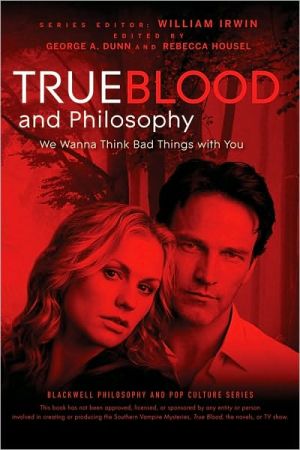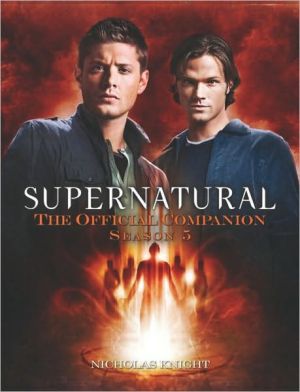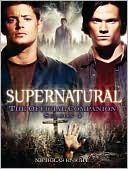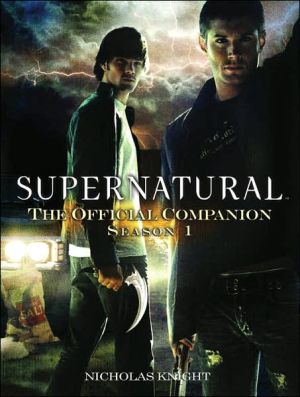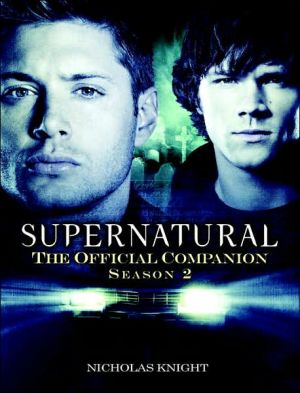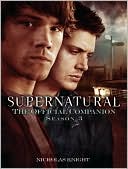True Blood and Philosophy: We Wanna Think Bad Things with You
The first look at the philosophical issues behind Charlaine Harris's New York Times bestsellers The Southern Vampire Mysteries and the True Blood television series\ Teeming with complex, mythical characters in the shape of vampires, telepaths, shapeshifters, and the like, True Blood, the popular HBO series adapted from Charlaine Harris's bestselling The Southern Vampire Mysteries, has a rich collection of themes to explore, from sex and romance to bigotry and violence to death and...
Search in google:
BLACKWELL PHILOSOPHY AND POP CULTURE SERIES This book has not been approved, licensed, or sponsored by any entity or person involved in creating or producing the Southern Vampire Mysteries, True Blood, the novels, or TV show. Does God hate fangs? Is Sam still Sam when he turns into a collie? Is coming out of the coffin the same as coming out of the closet? Are all vampires created evil? Vampires, werewolves, shapeshifters, fairies, telepaths—True Blood has it all. In a world where supernatural creatures coexist with human beings, Sookie Stackhouse and Bill Compton wrestle with powerful desires while facing complex issues concerning sex, romance, bigotry, violence, death, and immortality. Now, True Blood and Philosophy calls on the minds of some of history's great thinkers to perform some philosophical bloodletting on this thought-provoking series. From the metaphysics of mind reading to Maryann Forrester's cult of Dionysus, from vampire politics to the nature of personal identity, and from contemporary feminism to the rights of nonhuman species, True Blood and Philosophy mines the thinking of philosophers such as Plato, Aristotle, Thomas Aquinas, John Locke, Immanuel Kant, Friedrich Nietzsche, and John Rawls to enlighten us on the intriguing themes that surround this supernatural world. You'll find no shortage of juicy metaphysical morsels to sink your teeth into! To learn more about the Blackwell Philosophy and Pop Culture series, visit www.andphilosophy.com Publishers Weekly Can John Locke's memory theory explain the nature of vampire identity? Is there a PETA message buried in True Blood's take on vampire-human relations? These and other biting issues constitute the smart and amusing essays in the latest William Irwin-edited Blackwell Philosophy and Pop Culture Series (after Mad Men and Philosophy). Authors invoke the likes of Kant, Sartre, and Freud and approach their topics with the seriousness of a devoted fan balanced with the levity and wit the series is known for. More than one essay focusing on God and vampires duplicate efforts, but highlights include Christopher Robichaud's examination of consent in creating a vampire, William M. Curtis's discussion of metaphor and the mainstreaming of blood suckers, Ron Hirschbein's exploration of the "Edible Complex," and Patricia Brace and Robert Arp's analysis of the not-so-subtle similarities between vampire rights and gay rights. These easily-digestible philosophical morsels are perfect for fans of Jon Stewart and anyone else who likes to laugh while they learn. Copyright © Reed Business Information, a division of Reed Elsevier Inc. All rights reserved.
Acknowledgments: For the "Super" We Just Can't Live Without ixIntroduction: "If a Tree Falls in the Woods, It's Still a Tree-Ain't It?" 1Part 1 "I Used to Hate Vampires, Until I Got to Know One": Vampire-Human Ethics1 To Turn or Not to Turn: The Ethics of Making Vampires Christopher Robichaud 72 Dressing Up and Playing Human: Vampire Assimilation in the Human Playground Jennifer Culver 193 Pets, Cattle, and Higher Life Forms on True Blood Ariadne Blayde George A. Dunn 33Part 2 "Life-Challenged Individuals": The Politics of Being Dead4 Signed in Blood: Rights and the Vampire-Human Social Contract Joseph J. Foy 515 "Honey, If We Can't Kill People, What's the Point of Being a Vampire?": Can Vampires Be Good Citizens? William M. Curtis 656 Un-True Blood: The Politics of Artificiality Bruce A. McClelland 79Part 3 "Their Very Blood is Seductive": Eros, Sexuality, and Gender7 Coming Out of the Coffin and Coming Out of the Closet Patricia Brace Robert Arp 938 "I Am Sookie, Hear Me Roar!": Sookie Stackhouse and Feminist Ambivalence Lillian E. Craton Kathryn E. Jonell 1099 Sookie, Sigmund, and the Edible Complex Ron Hirschbein 123Part 4 "I Am Actually Older than Your Jesus": Natural, Supernatural, and Divine10 Let the Bon Temps Roll: Sacrifice, Scapegoats, and Good Times Kevin J. Corn George A. Dunn 13911 Are Vampires Unnatural? Andrew Terjesen Jenny Terjesen 15712 Does God Hate Fangs? Adam Barkman 175Part 5 "Our Existence is Insanity": The Metaphysics of Supernatural Beings13 A Vampire's Heart Has Its Reasons That Scientific Naturalism Can't Understand Susan Peppers-Bates Joshua Rust 18714 Keeping Secrets from Sookie Fred Curry 20315 Vampires, Werewolves, and Shapeshifters: The More They Change, the More They Stay the Same Sarah Grubb 215Contributors: "I Don't Know Who You Think You Are, but Before the Night Is Through . . ." 229Index: Sookie's Words of the Day 237
\ Publishers WeeklyCan John Locke's memory theory explain the nature of vampire identity? Is there a PETA message buried in True Blood's take on vampire-human relations? These and other biting issues constitute the smart and amusing essays in the latest William Irwin-edited Blackwell Philosophy and Pop Culture Series (after Mad Men and Philosophy). Authors invoke the likes of Kant, Sartre, and Freud and approach their topics with the seriousness of a devoted fan balanced with the levity and wit the series is known for. More than one essay focusing on God and vampires duplicate efforts, but highlights include Christopher Robichaud's examination of consent in creating a vampire, William M. Curtis's discussion of metaphor and the mainstreaming of blood suckers, Ron Hirschbein's exploration of the "Edible Complex," and Patricia Brace and Robert Arp's analysis of the not-so-subtle similarities between vampire rights and gay rights. These easily-digestible philosophical morsels are perfect for fans of Jon Stewart and anyone else who likes to laugh while they learn. \ Copyright © Reed Business Information, a division of Reed Elsevier Inc. All rights reserved.\ \ \ \ \ From the PublisherCan John Locke's memory theory explain the nature of vampire identity? Is there a PETA message buried in True Blood's take on vampire-human relations? These and other biting issues constitute the smart and amusing essays in the latest William Irwin-edited Blackwell Philosophy and Pop Culture Series (after Mad Men and Philosophy). Authors invoke the likes of Kant, Sartre, and Freud and approach their topics with the seriousness of a devoted fan balanced with the levity and wit the series is known for. More than one essay focusing on God and vampires duplicate efforts, but highlights include Christopher Robichaud's examination of consent in creating a vampire, William M. Curtis's discussion of metaphor and the mainstreaming of blood suckers, Ron Hirschbein's exploration of the "Edible Complex," and Patricia Brace and Robert Arp's analysis of the not-so-subtle similarities between vampire rights and gay rights. These easily-digestible philosophical morsels are perfect for fans of Jon Stewart and anyone else who likes to laugh while they learn. (June) (PW.com, August 16, 2010)\ \ \
